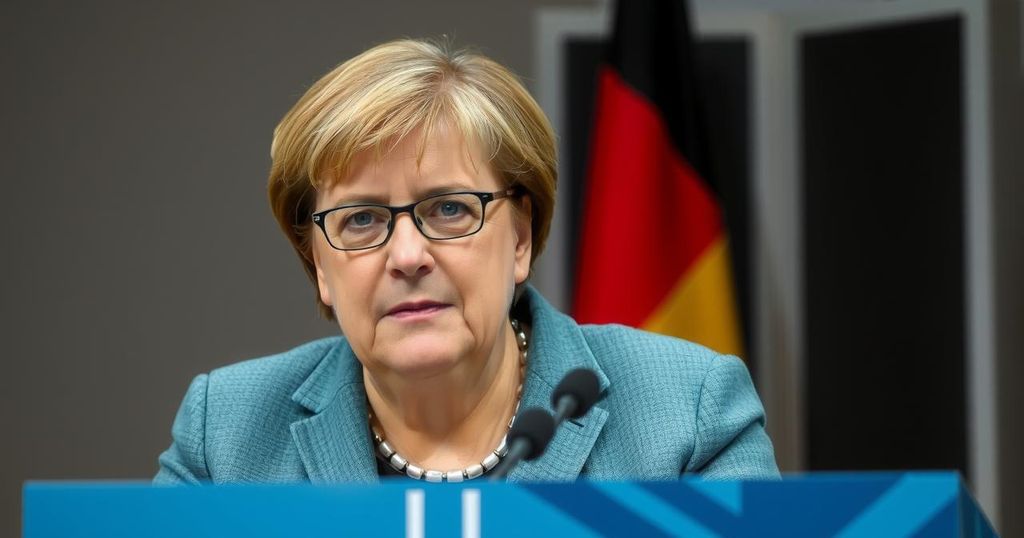Chancellor Scholz Loses Confidence Vote, Leading to Early Elections in Germany

Chancellor Olaf Scholz lost a confidence vote, triggering early elections in Germany set for February 23, following the breakdown of his governing coalition. The Social Democrats, currently trailing in polls, emphasize choices between investment and austerity as they prepare for a challenging electoral landscape amid political upheaval and fiscal disagreements within the coalition.
German Chancellor Olaf Scholz faces a political upheaval following a confidence vote loss, resulting in the dissolution of his coalition government and the call for snap elections on February 23, seven months earlier than planned. After a confidence vote deemed unfavorable—where only 207 of the 733 Bundestag members supported him—Scholz’s administration deteriorated amidst internal disputes over fiscal strategy and spending policies, particularly after the departure of the Free Democratic Party (FDP), which had been a crucial coalition partner. Scholz has portrayed these upcoming elections as a decisive moment for voters to choose between investment and austerity strategies, emphasizing infrastructure needs without adhering to spending cuts favored by conservative opponents. As the election scene develops, Scholz’s Social Democrats (SPD) remain in a precarious position, trailing in most polls behind the conservative Christian Democratic Union (CDU) and the far-right Alternative for Germany (AfD), while strategies and direct consequences of this political shift continue to unfold.
The backdrop of this political turmoil lies in the fragile coalition formed by Scholz’s centre-left Social Democrats, the Greens, and the FDP. Recent months of tension had intensified after the dismissal of Finance Minister Christian Lindner, leading to a critical challenge in maintaining a governing majority. The infighting stemmed from disagreements over fiscal policies, particularly addressing Germany’s debt and investment in public infrastructure amid pressures stemming from the pandemic and global economic volatility. Scholz, having previously served as a finance chief, accused the FDP of obstructing necessary investments, while also countering concerns raised by opposition leaders regarding his financial strategies.
Ultimately, the loss of a confidence vote by Chancellor Olaf Scholz highlights the precariousness of coalition politics in Germany. With elections on the horizon, the future direction of the country’s economic policies remains uncertain, as Scholz seeks to engage voters on the significance of investing in growth versus adhering to austerity measures. This political crisis not only shapes Scholz’s legacy but also impacts the entire landscape of German governance amidst a shifting EU political dynamic.
Original Source: www.aljazeera.com







